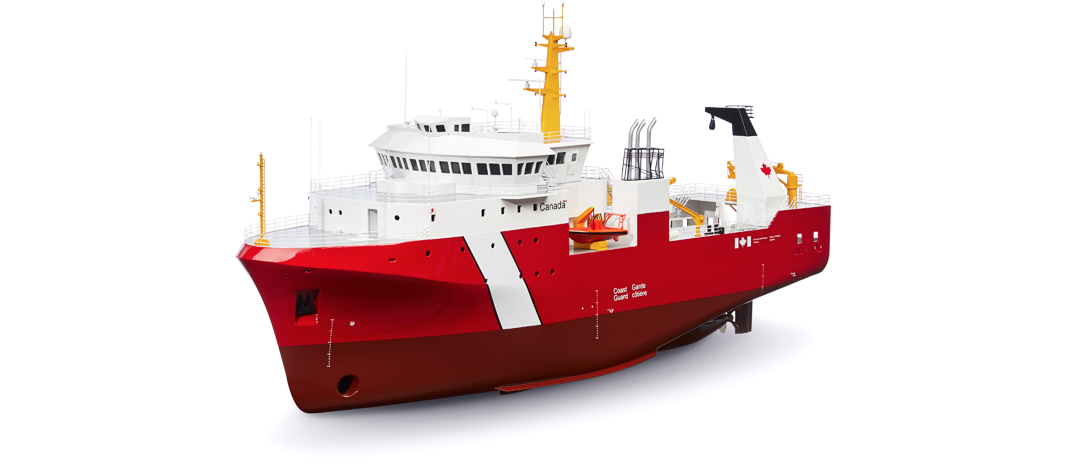Through the National Shipbuilding Strategy (NSS), Canada has commenced a long-term shipbuilding project to rebuild its fleet of combat and non-combat vessels. Launched in 2010, the NSS is Canada’s commitment to boost economic activity and, to a greater extent, equip the Royal Canadian Navy and the Canadian Coast Guard with ships to protect Canada’s interests at home and abroad.
After undergoing a competitive procurement process, two shipyards – Seaspan’s Vancouver Shipyards in British Columbia and Irving Shipbuilding Inc. in Halifax, Nova Scotia – were selected to build the new vessels. The RCN and CCG will each receive over 20 large vessels through the combat and non-combat packages.
In this issue of Vanguard, we have dedicated space to the shipbuilding and marine industries in the lead up to our event, ShipTech Forum 2020, taking place on February 25 at The Westin in Ottawa. The one-day conference will focus on technological advancement on next-generation marine capabilities, challenges in the design and construction of future Arctic ships, the future of innovation for marine-based industries, and climate change and its impact in the polar region. To learn more, visit vanguardcanada.com/shiptech2020.
At this event, we will delve more into shipbuilding, maintenance and repair of ships and the operations of the CCG. Our opening keynote speaker is Mario Pelletier, Commissioner of the CCG. He will address icebreaking operations, climate change, shipping challenges in the Arctic, protection of the coastal marine environment and search and rescue. We were privileged to talk with Mr. Pelletier recently about a wide range of operational matters for the CCG. Be sure to read the full interview with him in this issue.
Over recent years, there has been mounting pressure on the marine industry to reduce its contributions to greenhouse gas (GHG) and CO2 emissions. The International Maritime Organization (IMO), a United Nations’ specialized agency, is tasked with developing a strategy to reduce CO2 emissions by 70 per cent and GHG by at least 50 per cent by 2050. Andrew Kendrick, Vice President, Vard Marine Inc. and President-elect of the Society of Naval Architects and Marine Engineers (SNAME), writes about the challenges that this strategy will face in the lead up to 2050 and how Canada is positioned to take advantage of the opportunities to achieve these goals.
A 2018 poll revealed that 65 per cent of Canadians do not know much about their navy. Capt(N) Ian Parker (Ret’d), Director Naval Affairs for the Naval Association of Canada, addresses this problem in The Last Word. He points out that this overall attitude by Canadians has allowed successive governments to neglect the navy. To rectify this situation would require a focus on naval and maritime education.
I would like to highlight the Vanguard Game Changers who were selected for this issue. They are two leading visionaries in the industry who are doing tremendous work in cybersecurity and in advanced training using AI, data and machine learning. Please take the time to read the interviews with Chris Bartlett, President of CCX Technologies, and Anita Pawluk, President of RaceRocks 3D Inc.
I hope you enjoy reading this issue, and for those who will be attending ShipTech Forum 2020, I look forward to speaking with you.
Image: Seaspan.
